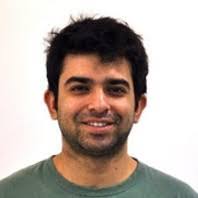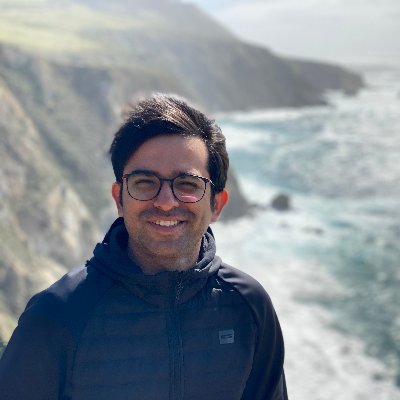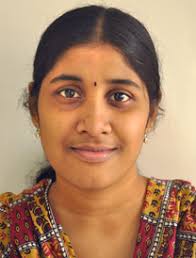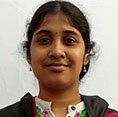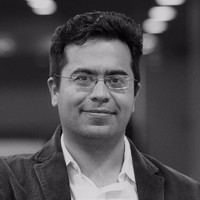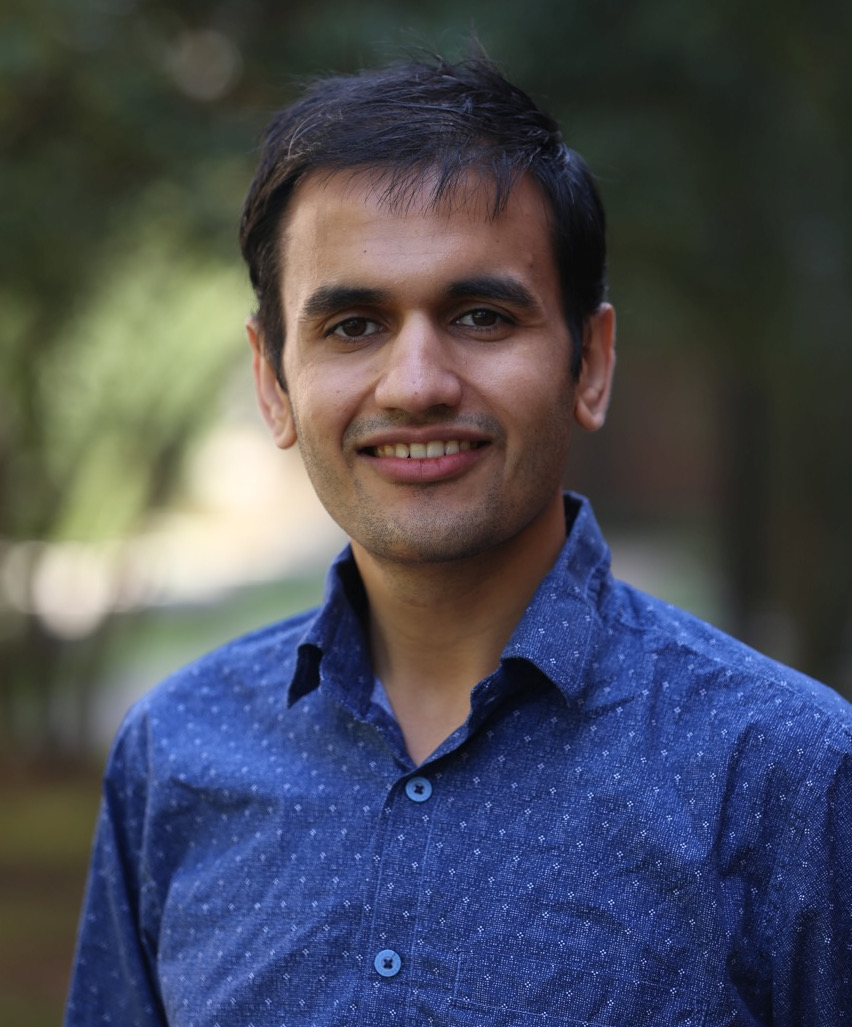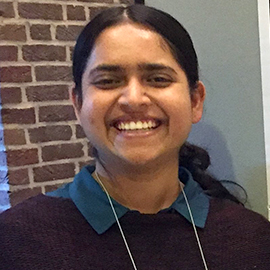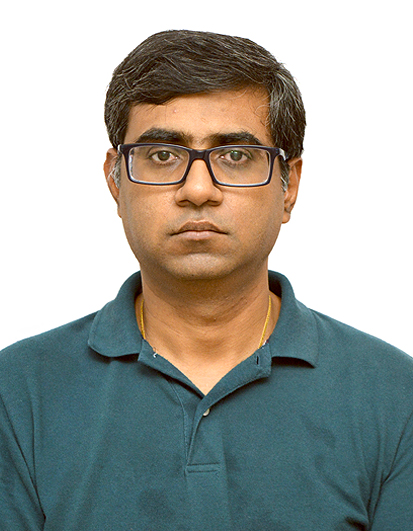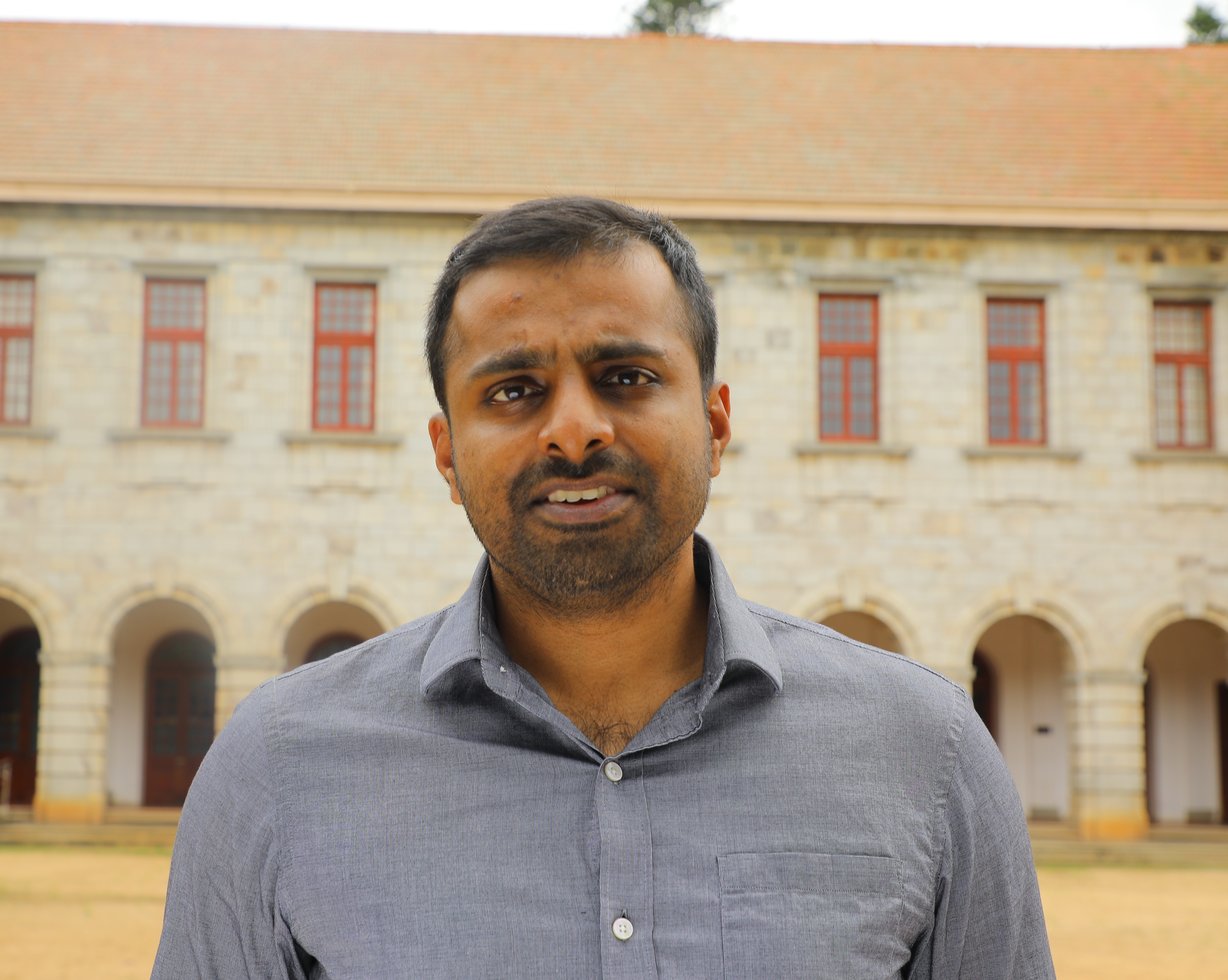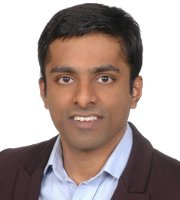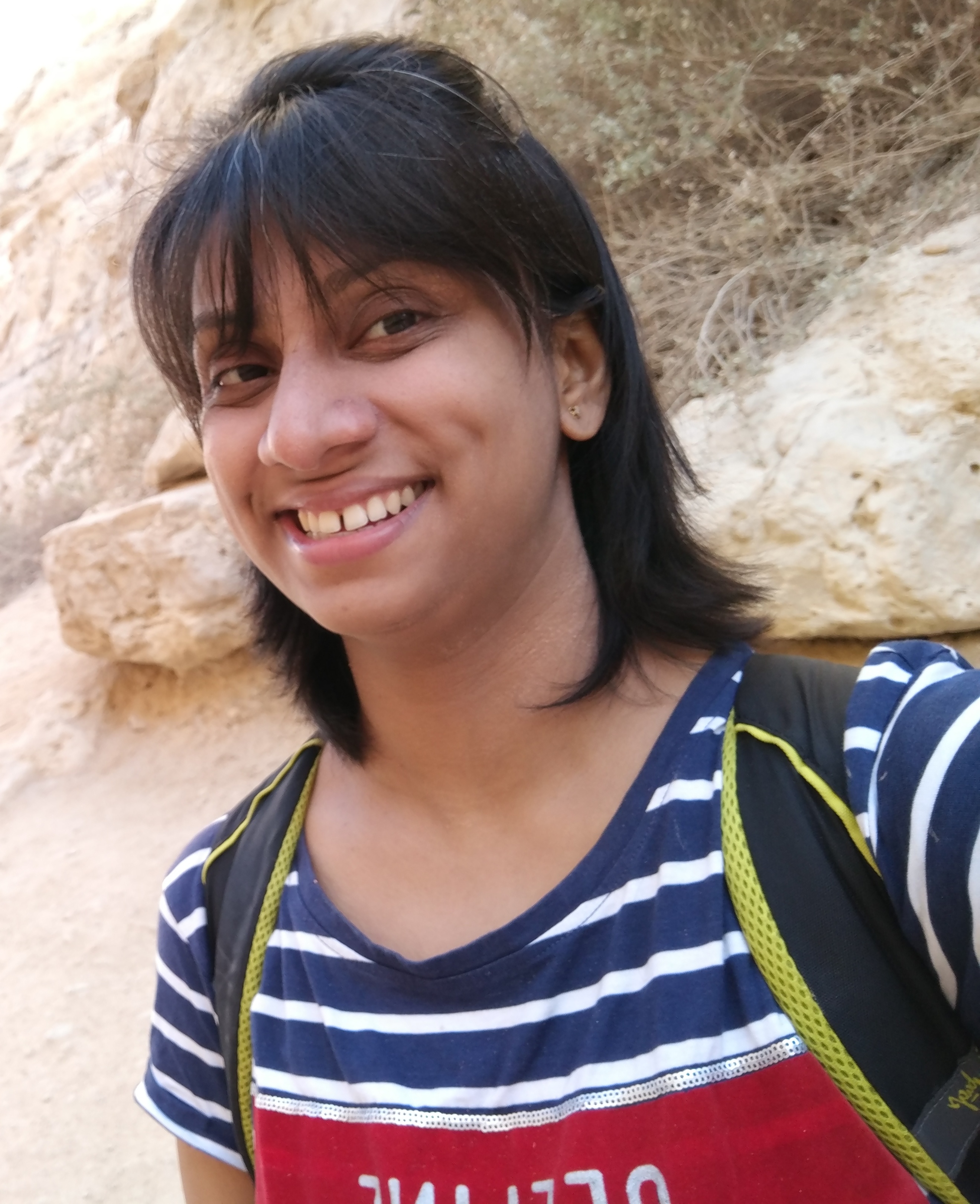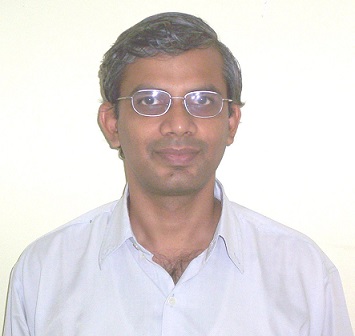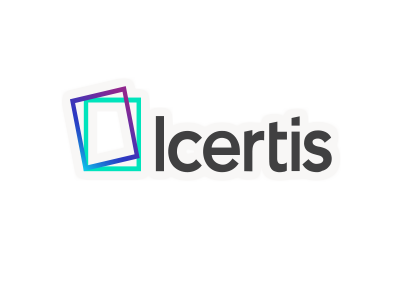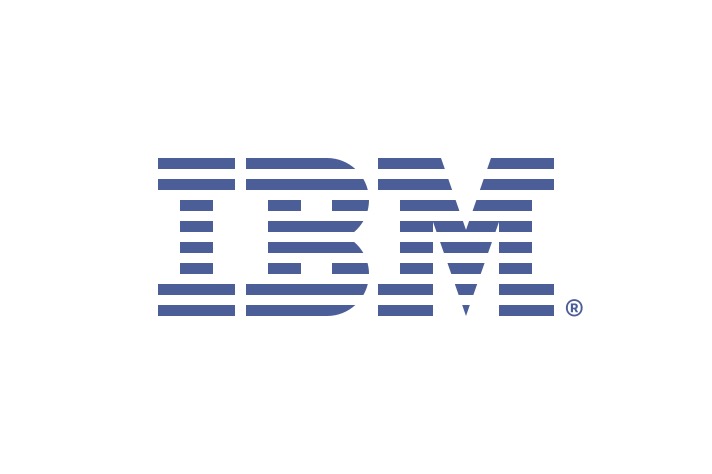About ARCS ARCS 2022
Co-located with the ACM India Annual Event, ARCS (formerly IRISS) is a premier ACM India conference spanning two days. The program features:
The audience comprises students, faculty and industry leaders from across India coming together in an interactive environment, such as panel discussions, informal "Ask me Anything" sessions with the ARCS speakers as well as Annual Event invitees like Turing Award laureates.
Editions of ARCS
| 2021: | PSG College of Technology |
| 2020: | IIT Gandhi Nagar |
| 2019: | Rajagiri School of Engineering and Technology - Kochi |
| 2018: | VNIT/Persistent Nagpur |
| 2017: | Calcutta University/Amity University - Kolkata |
| 2016: | Techno Park - Trivandrum |
| 2015: | BITS Pilani - Goa |
| 2014: | IIT Delhi |
| 2013: | IIT Madras |
| 2012: | Pune |
| 2011: | Hyderabad |
| 2010: | Bangalore |
| 2009: | IIT Guwahati |
| 2007: | IIIT Hyderabad |
| 2006: | IIT Madras |
| 2005: | IIT Kanpur |
| 2004: | IIT Bombay |
| 2003: | IIT Delhi |
| 2002: | IISc |
Highlights of ARCS ARCS 2022
ARCS Keynote
01Early Career Researcher Awardee Keynote
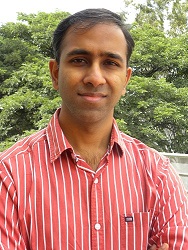
Prateek Jain
Google Research, India
Speaker Bio
Prateek Jain is a research scientist at Google Research India and an adjunct faculty member at IIT Kanpur. Earlier, he was a Senior Principal Researcher at Microsoft Research India. He obtained his PhD degree from the Computer Science department at UT Austin and his BTech degree from IIT Kanpur. He works in the areas of large-scale and non-convex optimization, high-dimensional statistics, and ML for resource-constrained devices. He wrote a monograph on Non-convex Optimization in Machine Learning summarizing many of his results in non-convex optimization. Prateek regularly serves on the senior program committee of top ML conferences and is an action editor for JMLR, and an associate editor for SIMODS. He has also won ICML-2007, CVPR-2008 best student paper award and more recently his work on alternating minimization has been selected as the 2020 Best Paper by the IEEE Signal Processing Society. Prateek also received the prestigious Young Alumnus Award 2021 from IIT Kanpur. He is the recipient of ACM India Early Career Researcher Award for 2021.Title of the talk: Pitfalls of Deep Learning
Abstract
While deep neural networks have achieved large gains in performance on benchmark datasets, their performance often degrades drastically with changes in data distribution encountered during real-world deployment. In this work, through systematic experiments and theoretical analysis, we attempt to understand the key reasons behind such brittleness of neural networks in real-world settings and why fixing these issues is exciting but challenging.We first hypothesize, and through empirical+theoretical studies demonstrate, that (i) neural network training exhibits "simplicity bias" (SB), where the models learn only the simplest discriminative features and (ii) SB is one of the key reasons behind non-robustness of neural networks. A natural way to fix SB in trained models is by identifying the discriminative features used by the model and learning new features "orthogonal" to the learned feature.
Post-hoc gradient-based attribution methods are regularly used to identify the key discriminative features for a model. But, due to lack of ground truth, a thorough evaluation of even the most basic input gradient attribution method is still missing in literature. Our second contribution is to overcome this challenge through experiments and theory on real and designed datasets. Our results demonstrate that (i) input gradient attribution does NOT highlight correct features on standard models (i.e., trained on original data) but surprisingly, it does highlight correct features on adversarially trained models (i.e., trained using adversarial training) and (ii) "feature leakage", which refers to the phenomenon wherein, given an instance, its input gradients highlight the location of discriminative features in the given instance as well as in other instances that are present in the dataset, is the reason behind why input gradient attribution fails for standard models.
Our work raises more questions than it answers, so we will end with interesting directions for future work.


Talks by DDA Awardees
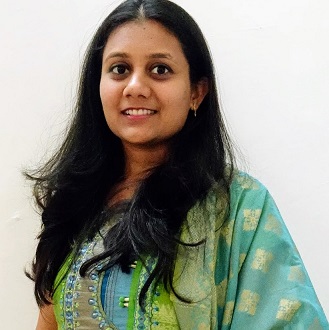
Vrunda Dave
Intel vrundaadave@gmail.comOn Some Fundamental Problems and Applications of Word Transducers
Bio
I am currently working as Formal Verification Engineer at Intel. I completed my PhD from IIT Bombay under the supervision of Prof Krishna S. My interest lies in formal verification.
Abstract
I will present an overview of the work done during my Ph.D. We will look at some fundamental questions on word transformations. In particular, we will look at some results concerning the expressiveness of different transducers. We will also look at the problem of continuity for the functions definable using transducers. Finally, I will present an application of transducers in deciding separability of string constraints.
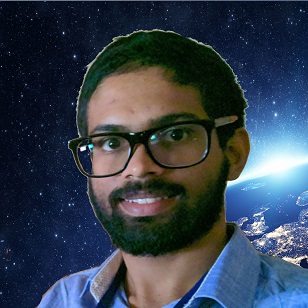
Suhail Sherif
Vector Institute, Toronto suhail.sherif@gmail.comQuery Complexity: Simple, Structured and Significant
Bio
Post Doc at Vector Institute, working in query and communication complexity
Abstract
"In this talk we'll take a look at query complexity and see how such a simple model can be so versatile as to lead us to results in communication complexity and quantum optimization.
The work presented herein is joint work with Arkadev Chattopadhyay, Ankit Garg, Robin Kothari, Nikhil S Mande and Praneeth Netrapalli."
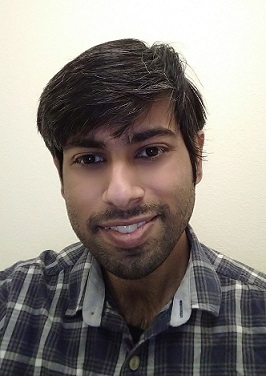
Suprovat Ghoshal
University of Michigan suprovat.ghoshal@gmail.comNew Algorithmic and Hardness Results in Learning, Error Correcting Codes and Constraint Satisfaction Problems
Bio
I completed my Ph.D. from Indian Institute of Science in 2021, and currently I am a postdoc at University of Michigan. I am primarily interested in problems in hardness of approximation and learning theory. Specifically, I have been exploring the role of hard constraints in optimization problems and their relationships with various notions of (small-set) expansion in graphs.


Talks by Early Career Researchers
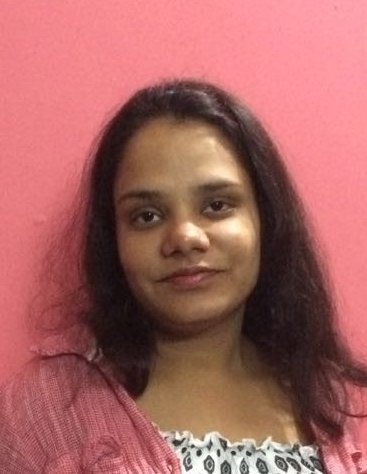
Shweta Jain
Indian Institute of Techonology, Ropar shwetajain@iitrpr.ac.inEarly Career Research Talk
Bio
Dr. Shweta Jain is currently working as an assistant professor in the computer science and engineering department at IIT Ropar. She acquired her Ph.D. from the Indian Institute of Science, Bangalore, in 2016. Her research interests include Game theory, Mechanism Design, and Machine Learning, Multi-armed Bandits. Recently, she has started looking into ethical aspects of machine learning in the application of clustering and recommender systems. She has extensively published in top AI conferences and journals such as IJCAI, AAAI, AAMAS, UAI, AIJ. She is also serving as the senior PC member of IJCAI-2021, PC member of several top-ranked AI conferences such as AAAI, AAMAS, WebConf2020.
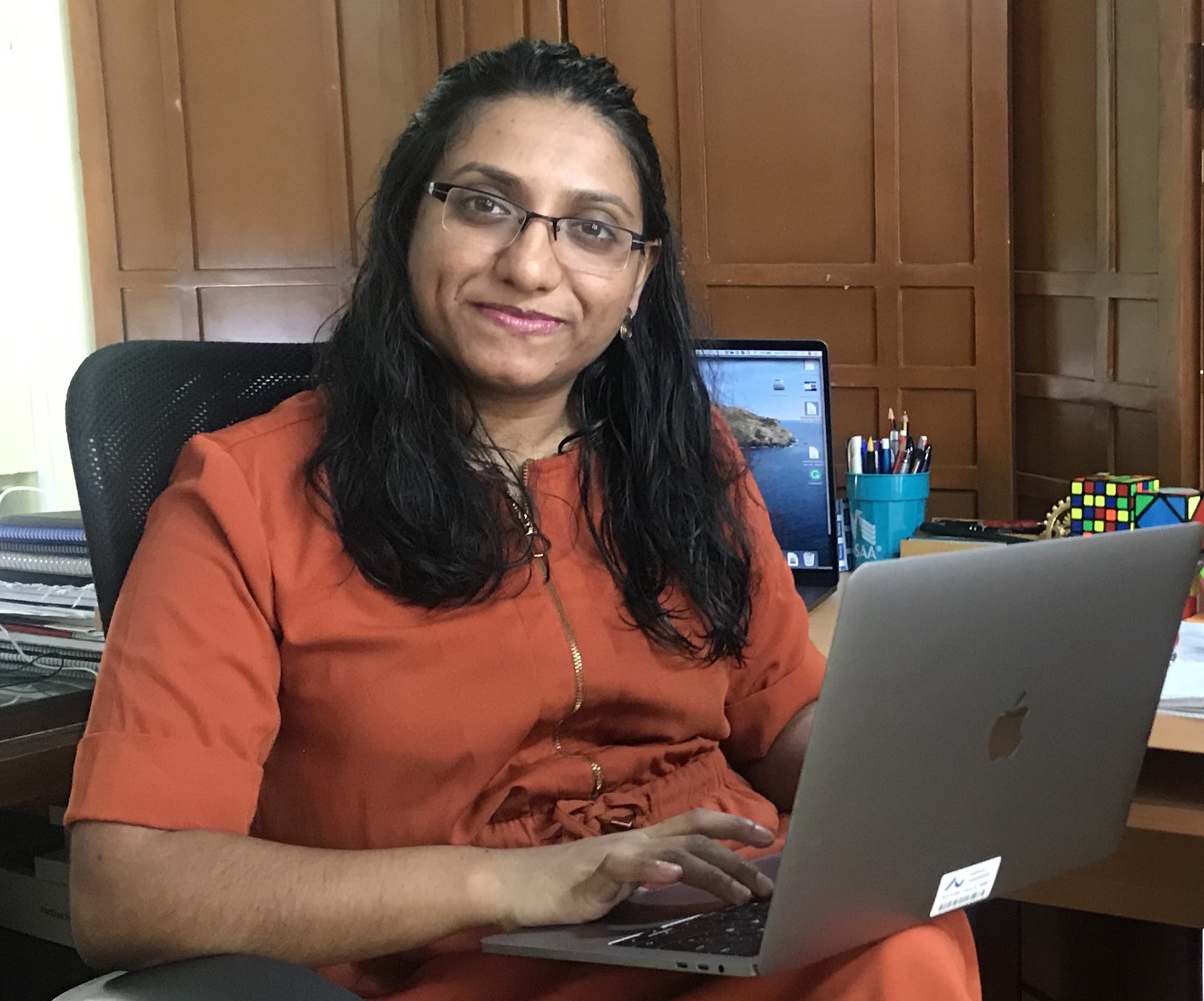
Chaya Ganesh
IISc chaya@iisc.ac.inThe PhD journey: Hindsight 20/20
Bio
Chaya Ganesh is an Assistant Professor in the Department of Computer Science and Automation at Indian Institute of Science. Before joining IISc, she was a post-doctoral researcher in the Crypto group at Aarhus University. She received her PhD from NYU's Courant Institute of Mathematical Sciences. Her research interests are in Cryptography and Security.
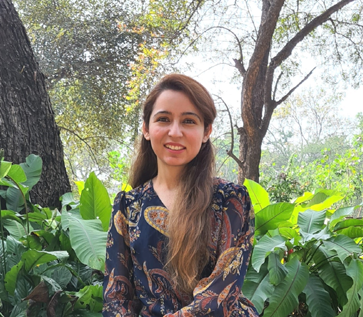
Dr. Parul Ganju
Ahammune Biosciences Private Limited parul@ahammune.comA Path Less Travelled by a PhD Graduate: Perspectives on Entrepreneurship
Bio
Dr. Parul Ganju is a scientist and an entrepreneur and currently serves as the CEO of Ahammune Biosciences, a drug discovery company working to develop new treatments for skin diseases. At Ahammune, Parul leads R&D, product development and investor relations. After completing her PhD in Skin Biology from National Institute of Immunology, Delhi, she was a DST-Inspire Faculty at CSIR-Institute of Genomics and Integrative Biology (CSIR-IGIB). She has extensive experience in the area of dermatology with specialization in vitiligo pathophysiology. She has unique insights into development of animal models for dermatological conditions to aid in drug discovery research. She has published her research in leading international journals and has filed for multiple patents
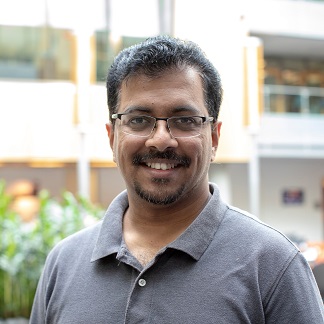
Karthik Ramachandra
Microsoft Azure Data SQL R&D, India karam@microsoft.comECR talk: My research journey
Bio
"Karthik Ramachandra heads the Microsoft SQL Server and Azure SQL Database R&D Organization in India. Prior to this, he was a researcher at Microsoft Research India and Microsoft Gray Systems Lab. His areas of interest include query processing and optimization in large scale databases and data management systems. He is also interested in cloud database-as-a-service offerings and the intersection of databases and compilers/programming languages.
He holds a PhD in computer science from Indian Institute of Technology Bombay and a B.Tech. from BMS College of Engineering, Bangalore. His doctoral thesis titled “Holistic Optimization of Database Applications” won an honorable mention for the ACM SIGMOD Jim Gray Doctoral Dissertation Award in 2015. It also won the IIT Bombay “Excellence in Ph.D Research Award 2015”. Prior to my Ph.D., he spent 5 years at ThoughtWorks Inc., where I led teams designing and developing enterprise software systems."


ARCS 2022 Keynote
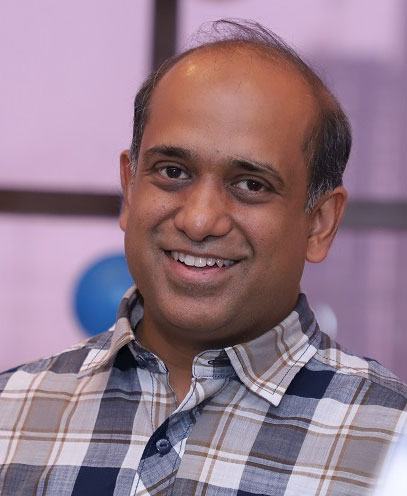
Amit Kumar
IIT Delhi
Speaker Bio
"Amit Kumar is a Professor in the Department of Computer Science and Engineering at IIT Delhi. He holds a B.Tech. degree from IIT Kanpur and Ph.D. from Cornell University. He was a member of technical staff at Bell Laboratories, Murray Hill during 2002-03, and has been a faculty member at IIT Delhi since 2003. His research lies in the area of combinatorial optimization, with emphasis on problems arising in scheduling, graph theory and clustering. He has received IBM Faculty Award (2005), INAE (Indian National Academy of Engineering) Young Engineer Award (2006) and INSA (Indian National Science Academy) Medal for Young Scientists (2011). He is a Fellow of Indian Academy of Sciences, and has received the Shanti Swarup Bhatnagar Award for Mathematical Sciences (2018)."Title of the talk: Online Algorithms with Recourse
Abstract
Online algorithms model situations where the input data arrives over time, and the algorithm needs to take decisions without knowing the future input. They are typically analyzed in the framework of competitive analysis -- the performance of such an algorithm is compared against an adversary which knows the entire future beforehand. Although this has been a very fruitful approach, it often leads to pessimistic results because the adversary is much more powerful than the online algorithm. Recently, there have been attempts to evolve alternate ways of analyzing online algorithms which give more power to the online algorithm (as compared to the offline adversary). I will discuss some recent work on models which allow the algorithm to change a small number of decisions taken in the past. Drawing from examples in scheduling, graph algorithms, and recent work on discrepancy minimization, I will show that one can get interesting results in this ''online algorithms with recourse'' model.

Panel Discussion
Topic
Fairness, Accountability and Transparency
Panelists

Abhijnan Chakraborty
IIT Delhi abhijnan@iitd.ac.inFairness, Accountability and Transparency
Bio
Abhijnan Chakraborty is an Assistant Professor at Indian Institute of Technology (IIT) Delhi. His research interests fall under the broad theme of Computing and Society, covering the research areas of Social Computing, Information Retrieval and Fairness in Machine Learning. Prior to joining IIT Delhi, he spent two and half years at the Max Planck Institute for Software Systems (MPI-SWS), Germany as a post-doctoral researcher. He obtained his PhD from Indian Institute of Technology (IIT) Kharagpur, where he was awarded the Google India PhD Fellowship and the Prime Minister's Fellowship for Doctoral Research. Prior to joining PhD, he spent two years at Microsoft Research, working in the area of mobile systems. He has authored several papers in top-tier computer science conferences including WWW, KDD, AAAI, AAMAS, CSCW, ICWSM and MobiCom. His research works have won the best paper award at ASONAM'16 and best poster award at ECIR'19. He is one of the recipients of an internationally competitive research grant from the Data Transparency Lab to advance his research on fairness and transparency in algorithmic systems. More details about him can be found at https://www.cse.iitd.ac.in/~abhijnan/
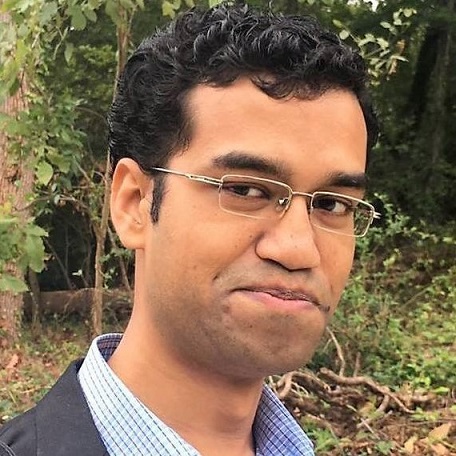
Anupam Guha
IIT Bombay anupam_guha@iitb.ac.inFairness, Accountability and Transparency (FAccT)
Bio
Anupam Guha is an Assistant Professor at the Centre for Policy Studies at IIT Bombay who primarily works on AI, AI policy, AI and labour. He has a PhD, batch of '17, in computer science from the University of Maryland where he worked on multimodal language and vision AI systems. He has also worked in the industry as an AI researcher from 2017 to 2019 on NLP systems. His current work in AI policy is informed by a technical understanding of AI and its relationship with labour and capital. He works to expand the critical lens on AI from the current instrumental and normative frameworks to one informed by an immanent critique of the political economy of techno-social systems.
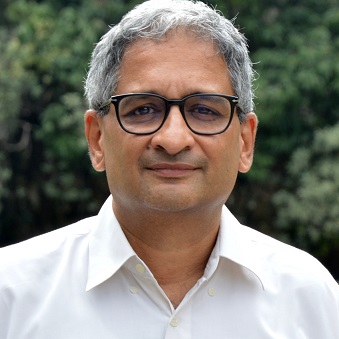
Balaji Parthasarathy
International Institute of Information Technology Banglaore pbalaji@iiitb.ac.inFairness, Accountability and Transparency (FAccT)
Bio
Balaji Parthasarathy is Professor at the International Institute of Information Technology Bangalore. where he also co-founded IIITB's Center for Information Technology and Public Policy. His intellectual interests are rooted in economic geography and economic sociology, and explore the relationships between technological change and innovation, economic globalization, and social transformation. Within this broad focus, his work follows two threads. One thread examines the impacts of public policies and firm strategies on the social and spatial organization of production in the ICT industry. Another thread deals with ICTs for Development or ICTD. Here, his interests lie in understanding how ICTs are deployed in various domains of activity to transform social relationships, especially in underprivileged contexts.
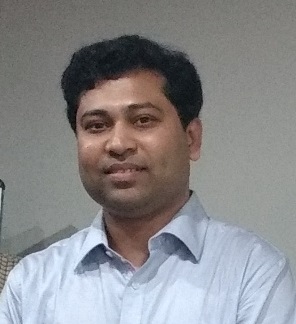
Diptikalyan Saha
IBM Research, India diptsaha@in.ibm.comFairness, Accountability and Transparency
Bio
Dr. Diptikalyan Saha or Dipti is a Senior Technical Staff Member at IBM Research India. He obtained his PhD in Computer Science from Stony Brook University in 2006. He did his M.S from Stony Brook and B.E. from Jadavpur University. His current research focusses applying AI for Software Testing and Testing AI systems to build Trustworthy AI.
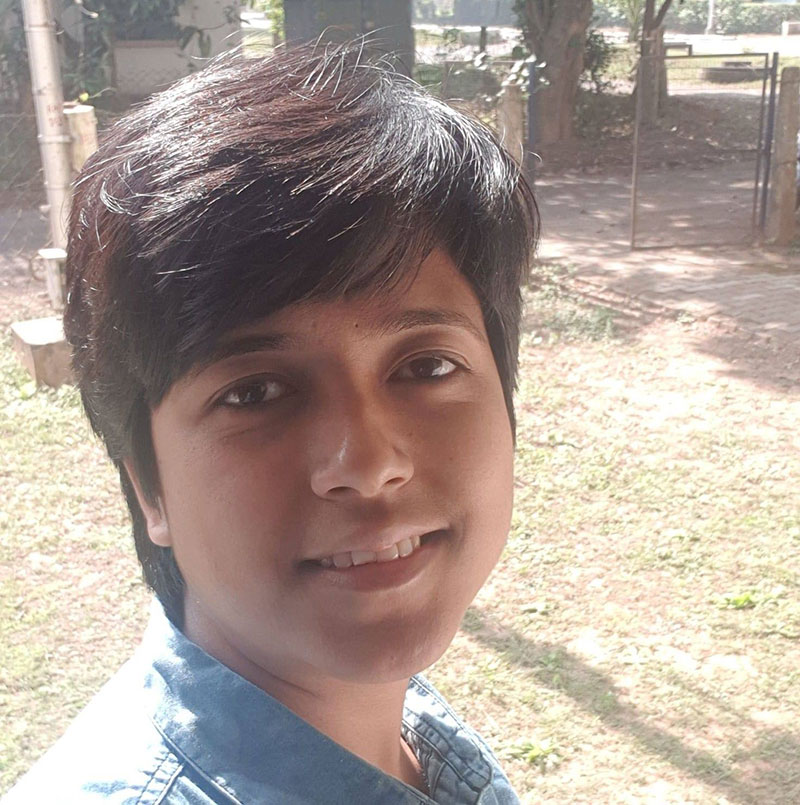
Manjira Sinha
IIT Kharagpur manjiras@gmail.comFairness, Accountability and Transparency (FAccT)
Bio
Manjira Sinha is an Assistant Professor in Centre of Excellence in AI & G S Sanyal School of Telecommunication at the Indian Institute of Technology Kharagpur. Her areas of interests include NLP, Language Comprehension, Assistive Technology, Human-Computer Interaction, and impact of Technology on Society.
Industry Panel Discussion
Topic
Relevance of Computer Science Theory in Industry
Panelists
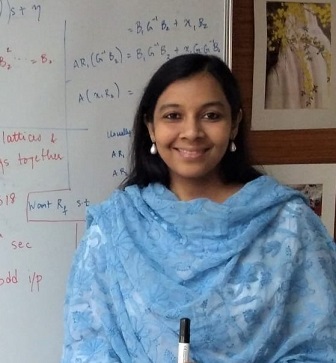
Shweta Agrawal
IIT Madras shweta@cse.iitm.ac.inRelevance of Computer Science Theory in Industry
Bio
"Dr. Shweta Agrawal is an associate professor at the Computer Science and Engineering department, at the Indian Institute of Technology, Madras. She earned her PhD at the University of Texas at Austin, and did her postdoctoral work at the University of California, Los Angeles. Her area of research is cryptography and information security, with a focus on post quantum cryptography. She has won multiple awards and honours such as the Swarnajayanti award, best paper award at Eurocrypt, invited speaker at Asiacrypt and BY award for excellence in research and teaching."
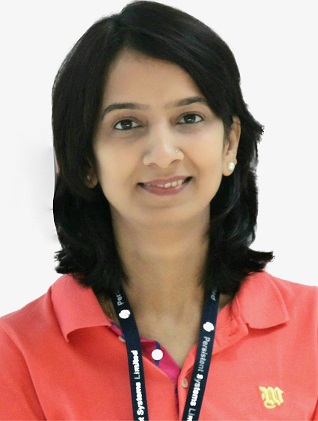
Dr Mukta Paliwal
Persistent Systems paliwalmukta@gmail.com"Relevance of Computer Science Theory in Industry"
Bio
"Dr. Mukta is an AWS certified Machine Learning practitioner. Having overall experience of 15+ years in research and development using machine learning techniques to solve real-world problems.
Currently, she is working with Persistent Systems Ltd. in AI Research Lab as Sr Data Scientist in data science domain. Her present focus is on utilising the cutting-edge development work happening in the area of AI-ML to solve challenging use cases in healthcare, banking and financial domain.
She has received Excellence in Technology Award for her work in Machine Learning Area at the annual event in Persistent in 2019. She has received Industry Innovation Award during the 28th International Conference of Management of Technology in the same year.
She is a PhD and Post Doc from IIT Bombay in Applied Machine Learning area. She is awarded with Excellence in Thesis for her research work at IIT Bombay and received gold medal for PG in statistics from Indore University.
She has number of research publications in International and National Journals and have made presentations in conferences in India, Singapore and USA. She is member of Board of Studies for AI/ML courses at Engineering Colleges. She is an Eminent Speaker of ACM India and speaks regularly at Workshops and Technical Events related to AI-ML.
Please feel free edit as needed."
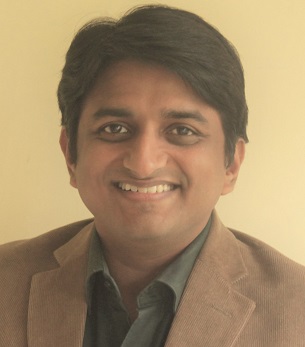
Nishanth Chandran
Microsoft Research India nishanthucla@gmail.comRelevance of Computer Science Theory in Industry
Bio
"Nishanth Chandran is a Principal Researcher at Microsoft Research, India. His research interests are in problems related to cryptography, cloud security, confidential computing and secure computation. Prior to joining MSRI, Nishanth was a Researcher at AT&T Labs, and before that he was a Post-doctoral Researcher at MSR Redmond.
Nishanth is a recipient of the 2010 Chorafas Award for exceptional achievements in research and his research has received coverage in science journals and in the media at venues such as Nature and MIT Technology Review. He has published several papers in top computer science conferences and journals such as Crypto, Eurocrypt, IEEE S&P, CCS, STOC, FOCS, SIAM Journal of Computing, Journal of the ACM, and so on. His work on position-based cryptography was selected as one of the top 3 works and invited to QIP 2011 as a plenary talk. Nishanth has served on the technical program committee of many of the top cryptography conferences on several occasions and he holds numerous US Patents. Nishanth received his Ph.D. in Computer Science from UCLA, M.S. in Computer Science from UCLA, and B.E. in Computer Science and Engineering from Anna University (Hindustan College of Engineering), Chennai."
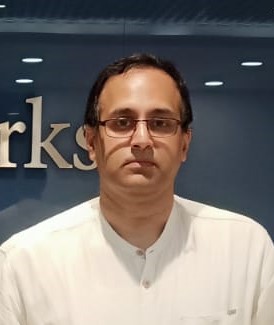
Prahlad Sampath
MathWorks psampath@mathworks.comRelevance of Computer Science Theory in Industry
Bio
Prahlad is currently an Engineering Manager at MathWorks India, where he is leading a team working on verification and validation tools for Simulink, Stateflow, MATLAB and C. He was awarded a PhD in Computer Science from Imperial college, University of London in 2000 for his work on using game semantics for program analysis. He has since worked as a researcher at TRDDC, Pune; and General Motors India Science Lab with a focus on applying formal methods based techniques to address software engineering problems.
Oral Presentations
| Paper Session 1: Graphs and Spatio-temporal processes | |||||||||
| Sr. No. | Authors | Paper title | Publication Venue | ||||||
| 1 | Jayant Jain, Vrittika Bagadia, Sahil Manchanda and Sayan Ranu | NeuroMLR: Robust & Reliable Route Recommendation on Road Networks | NeurIPS 21 | ||||||
| 2 | Soumi Das, Harikrishna Patibandla, Suparna Bhattacharya, Kshounis Bera, Niloy Ganguly and Sourangshu Bhattacharya | TMCOSS: Thresholded Multi-Criteria Online Subset Selection for Data-Efficient Autonomous Driving | ICCV 21 | ||||||
| 3 | Ismi Abidi, Ishan Nangia, Paarijaat Aditya and Rijurekha Sen | Privacy in Urban Sensing with Instrumented Fleets, Using Air Pollution Monitoring As A Usecase | NDSS 22 | ||||||
| 4 | Vinayak Gupta, Srikanta Bedathur, Sourangshu Bhattacharya and Abir De | A Neural Approach for Modeling Continuous Time Sequences with Intermittent Observations | AISTATS 21 | ||||||
| 5 | Sunil Nishad, Shubhangi Agarwal, Arnab Bhattacharya and Sayan Ranu | GraphReach: Position-Aware Graph Neural Network using Reachability Estimations | IJCAI 21 | ||||||
| Paper Session 2: Classification | |||||||||
| Sr. No. | Authors | Paper title | Publication Venue | ||||||
| 1 | Arindam Bhattacharya, Sumanth Varambally, Amitabha Bagchi and Srikanta Bedathur | Fast One-class Classification using Class Boundary-preserving Random Projections | KDD 21 | ||||||
| 2 | Anshul Mittal, Noveen Sachdeva, Sheshansh Agrawal, Sumeet Agarwal, Purushottam Kar and Manik Varma | ECLARE: Extreme Classification with Label Graph Correlations | WWW 21 | ||||||
| 3 | Kunal Dahiya, Ananye Agarwal, Deepak Saini, Gururaj K, Jian Jiao, Amit Singh, Sumeet Agarwal, Purushottam Kar and Manik Varma | SiameseXML: Siamese Networks meet Extreme Classifiers with 100M Labels | ICML 21 | ||||||
| 4 | Nilesh Gupta, Sakina Bohra, Yashoteja Prabhu, Saurabh Purohit and Manik Varma | Generalized Zero-Shot Extreme Classification | KDD 21 | ||||||
| Paper Session 3: Theory | |||||||||
| Sr. No. | Authors | Paper title | Publication Venue | ||||||
| 1 | Sruthi Gorantla, Amit Deshpande and Anand Louis | On the Problem of Underranking in Group-Fair Ranking | ICML 21 | ||||||
| 2 | Yash Khanna, Anand Louis and Rameesh Paul | Independent Sets in Semi-random Hypergraphs | 17th Algorithms and Data Structures Symposium | ||||||
| 3 | Siddharth Barman, K Ramakrishnan and Saladi Rahul | Optimal Algorithms for Range Searching over Multi-Armed Bandits | IJCAI 2021 | ||||||
| 4 | Bhaskar Mukhoty, Subhajit Dutta and Purushottam Kar | Robust non-Parametric Regression via Incoherent Subspace Projections | ECML 2021 | ||||||
| Paper Session 4: ML and NLP | |||||||||
| Sr. No. | Authors | Paper title | Publication Venue | ||||||
| 1 | Debanjan Konar, Siddhartha Bhattacharyya, Bijaya K. Panigrahi and Elizabeth C Behrman | Qutrit-inspired Fully Self-supervised Shallow Quantum Learning Network for Image Segmentation | IEEE Transaction on Neural Networks and Learning Systems | ||||||
| 2 | Nishat Koti, Mahak Pancholi, Arpita Patra and Ajith Suresh | SWIFT: Super-fast and Robust Privacy-Preserving Machine Learning | Usenix Security Symposium | ||||||
| 3 | Yatin Nandwani, Deepanshu Jindal, Mausam Mausam and Parag Singla | Neural Learning of One-of-Many Solutions for Combinatorial Problems in Structured Output Spaces | ICLR 21 | ||||||
| 4 | Punyajoy Saha, Binny Mathew, Kiran Garimella and Animesh Mukherjee | "Short is the Road that Leads from Fear to Hate": Fear Speech in Indian WhatsApp Groups | WWW 21 | ||||||
| 5 | Rajdeep Mukherjee, Uppada Vishnu, Chandana Peruri, Sourangshu Bhattacharya, Niloy Ganguly, Pawan Goyal and Koustav Rudra | MTLVS: A Multi-Task Framework to Verify and Summarize Crisis-Related Microblogs | WSDM 2022 | ||||||
| 6 | Rajdeep Mukherjee, Tapas Nayak, Yash Butala, Sourangshu Bhattacharya and Pawan Goyal | PASTE: A Tagging-Free Decoding Framework Using Pointer Networks for Aspect Sentiment Triplet Extraction | EMNLP 2021 | ||||||
Poster Presentations
| Poster Session 1: Theory | |||||||||
| Sr. No. | Authors | Paper title | |||||||
| 1 | Pranjal Dutta | tau-Conjecture for sum-of-squares: A unified approach to lower bound and derandomization | |||||||
| 2 | Debojyoti Dey, Bhaskar Mukhoty and Purushottam Kar | AGGLIO: Global Optimization for Locally Convex Functions | |||||||
| 3 | Ashwin Jacob, Diptapriyo Majumdar and Venkatesh Raman | Faster FPT Algorithms for Deletion to Pairs of Graph Classes | |||||||
| 4 | Raghavendra Sridharamurthy | Comparative Analysis of Merge Trees using Local Tree Edit Distance | |||||||
| 5 | Sriram Bhyravarapu, Tim A. Hartmann, Subrahmanyam Kalyanasundaram and Vinod Reddy | Conflict-Free Coloring: Graphs of Bounded Clique Width and Intersection Graphs | |||||||
| 6 | Meghana Nasre, Prajakta Nimbhorkar, Keshav Ranjan and Ankita Sarkar | Popular Matchings in the Hospital-Residents Problem with Two-sided Lower Quotas | |||||||
| 7 | Debajyoti Bera and Tharrmashastha Sapv | Quantum and Randomized Algorithms for Non-linearity Estimation | |||||||
| Poster Session 2 | |||||||||
| Sr. No. | Authors | Paper title | |||||||
| 1 | Prachi Kashikar and Sharad Sinha | Model Compression for Edge AI | |||||||
| 2 | Jayant Vyas, Debasis Das and Santanu Chaudhury | SAFER: Safe and Fuel Efficient Driving Recommendation | |||||||
| 3 | Pavitra Prakash Bhade and Dr. Sharad Sinha | Detection of Microarchitectural Side-Channel Attacks using Thread Level Performance Counters | |||||||
| 4 | Mohit Chandra, Manvith Reddy, Shradha Sehgal, Saurabh Gupta, Arun Balaji Buduru and Ponnurangam Kumaraguru | “A Virus Has No Religion”: Analyzing Islamophobia on Twitter During the COVID-19 Outbreak | |||||||
| 5 | Asmit Kumar Singh, Chirag Jain, Jivitesh Jain, Rishi Raj Jain, Shradha Sehgal, Tanisha Pandey and Ponnurangam Kumaraguru | What's Kooking? Characterizing India's Emerging Social Network, Koo | |||||||
| 6 | Shivangi Singhal, Mudit Dhawan, Rajiv Ratn Shah and Ponnurangam Kumaraguru | Inter-modality Discordance for Multimodal Fake News Detection | |||||||
| 7 | Indu Joshi, Ayush Utkarsh, Riya Kothari, Vinod Kurmi, Antitza Dantcheva, Sumantra Dutta Roy and Prem Kalra | Data Uncertainty Guided Noise-Aware Fingerprint Preprocessing | |||||||
| 8 | Deepankar Nankani | Cardiac Abnormality Detection from Multichannel ECG using Feature Fused Parallel CNN-GAP | |||||||


Registration
The Symposium is open to all research scholars, researchers and academicians pursuing research in Computer Science and related areas. Registration is free and the page will open in the month of January 2022. Registration is mandatory to attend the event.
Schedule Details Information of Event Schedules
ARCS is committed to making participation in the event a meaningful experience for everyone, regardless of level of experience, in the Computing field.
Day 1 - 10th February 2022

Opening comments
Speakers : Meenakshi D'Souza, Sayan Ranu, Principal, PSG College of Technology.

Paper Session 1
5 Papers
Session Chair : Amit Awekar

Break

ECR keynote talk
Pitfalls of Deep Learning
Speaker : Prateek Jain
Session Chair : Saket Saurabh

Paper Session 2
4 Papers
Session Chair : Swaprava Nath

Lunch break

ECR Talks
Session Chair : Meenakshi D'Souza

Break

Panel Discussion
Fairness, Accountability and Transparency
Session Chair : R. Nadarajan

Poster Session 1
7 Posters
Session Chair : Neeldhara Misra
Day 2 - 11 th February 2022

DDA talks
3 talks by DDA Awardees
Session Chair : Supratik Chakraborty

Break

Paper Session 3
4 Papers
Session Chair : Syamantak Das

ARCS 2022 Keynote
Speaker : Amit kumar
Session Chair : Sayan Ranu

Lunch break

Paper Session 4
6 Papers
Session Chair : Rohan Paul

Break

Poster Session 2
8 Posters
Session Chair : Sayan Ranu

Industry Panel Discussion
Role of Computer Science Theory in the Industry
Session Chair : Hemant Pande

Closing Comments
ARCS 2022 Career Fair
The organizers of ARCS are happy to announce an exclusive career fair for the research scholars attending ARCS 2022! Internships and job openings in R&D in some of the Sponsoring firms will be announced and advertised throughout the ARCS sessions on 10 and 11 February 2022. This is an exclusive opportunity only for the research scholars attending ARCS, so be ready and attend all the sessions!


Call for Papers Paper Submission
ACM India announces the 16th Academic Research and Careers for Students
(ARCS) Symposium, Coimbatore, India. Earlier, the event was known as
IRISS. ARCS invites research scholars of computer science and allied areas
in India to showcase their recent work (either published in 2021 or accepted
in 2021 for publication) to a conclave of researchers and potential employers.
Apart from the contributed talks and poster presentations, ARCS 2022
will comprise talks by the ACM-India Doctoral Dissertation Award recipient (DDA), Early
Career
Research (ECR) Awardee and an invited Keynote
Speaker. Further to this there will be four talks by early career researchers
discussing the speaker’s transition from PhD to their career and job, their
expectations, disappointments, why they chose what they did etc. Finally,
we will also have several panel discussions.
Submissions will be in electronic form via EasyChair. Submissions must not exceed 2 pages
(including the title page, but excluding
bibliography). Submissions should begin with a title followed by the names
and affiliations of all co-authors. This should be followed by a detailed abstract and the
details of the venue where the work has either appeared or
been accepted for publication. Submissions should be no more than two
pages long. The usage of pdflatex and the ARCS style file are mandatory;
no changes to font size, page geometry, etc. are permitted. Because of ongoing
pandemic we will accommodate virtual presentations, if needed.
Click
<< here >> to download the ARCS style file.
Important Dates
Abstract Submission deadline extended: 22nd October, 2021 30th October, 2021
Notification to Authors: 1st December, 2021 11th December, 2021
Paper submission and notification process is complete for ARCS 2022.
Download Call for Papers


Committees

Programme Committee
Sayan Ranu (IIT Delhi), Chair
Ankit Anand (DeepMind)
Amit Awekar (IIT Guwahati)
Nipun Batra (IIT Gandhinagar)
Abhijnan Chakraborty (IIT Delhi)
Ayon Chakraborty (IIT Madras)
Syamantak Das (IIIT Delhi)
Manoj Gupta (IIT Gandhinagar)
Neelima Gupta (University of Delhi)
Aritra Hazra (IIT Kharagpur)
Neeldhara Misra (IIT Gandhinagar)
Adway Mitra (IIT Kharagpur)
Meghna Nasre (IIT Madras)
Swaprava Nath (IIT Bombay)
Biswabandan Panda (IIT Bombay)
Rohan Paul (IIT Delhi)
Krithika Ramaswamy (IIT Palakkad)
Aishwarya Thiruvengadam (IIT Madras)
Rohit Vaish (TIFR)
Hamim Zafar (IIT Kanpur)


Steering Committee
Meenakshi D'Souza
(Chair, IIIT, Bangalore)
Jayant R. Haritsa
(IISc Bangalore)
Ponnurangam Kumaraguru
(IIIT, Delhi)
Hemant Pande
(Executive Director, ACM India)
Shekhar Sahasrabudhe
(COO, ACM India)


Organizing Committee
R. Nadarajan
(PSG TECH, CBE)
Ranga Rajagopal
(Director & CEO, ACENET Technologies, CBE)
Suresh Balusamy
(PSG TECH, CBE)
Rajnish Sharma
Dean (Research & Academics), Chitkara University
A Kaja Mohideen
PSG College of Technology
Neeldhara Misra
IIT Gandhinagar


Research Scholars Experience
The Inter-Research-Institute Student Seminar in Computer Science (IRISS) is an annual student seminar conducted by ACM India, and is also co-located with the ACM India Annual Event. The IRISS 2020, organized at IIT Gandhinagar, attracted many eminent researchers from both academia and industry along with many fellow research students. What sets apart IRISS for me from most of the other conferences is the diversity in the backgrounds of the attendees, ranging from core CS theory to various disciplines of computer systems and artificial intelligence, and also the variety of carefully designed sessions that I will allude to next.
IRISS 2020 had several sessions covering the various areas of computer science. The two keynotes included one in the area of Privacy Amplification and the other in the area of Testing SQL queries. A special attraction was the talks given by the recipients of the ACM India Doctoral Dissertation Award and the Honorable Mention. These talks were exceptionally well structured to cover the overview of the PhD thesis. Another particularly refreshing session included the talks by Early Career Researchers. These included young leaders in diverse fields of industry, academics and start-up. They discussed their experiences as a graduate student, what drove their career choices and their life after graduation. For the crowd that included many graduate students like me, getting to understand the flavour and challenges of research that usually come on our way as we graduate and join the research community was very enlightening. The panel discussions were also on some extremely relevant topics including pedagogy in computer science, and industry awareness in terms of the opportunities and challenges. What appealed a lot to me was an “ask me anything” session where the prominent researchers who were part of the IRISS event and the speakers from the ACM India Annual day that followed the next day were present. This informal session was extremely inspiring and informative.
The various contributed talks, lightning talks and poster presentations provide students with a platform for showcasing recent research work. These include many presentations on papers accepted in top-tier international conferences. I also got an opportunity to present my work on DBMS testing as part of the contributed talks at IRISS 2019, which was held in Kochi. The feedback from the peers and experienced researchers was extremely useful.
The event included lunches, dinner and cultural show. These also provided a great networking opportunity with researchers from various universities in the country. Being co-located with ACM Annual Event, I also got a chance to listen to some eminent researchers, including Yann Lecun (2018 ACM Turing Award Winner), Shwetak Patel (Winner of 2018 ACM Prize in Computing), Susanne Albers (Gottfried Wilhelm Leibniz Prize) and M. Balakrishnan (ACM Eugene L. Lawler Award) deliver really illuminating talks. I found the talk by M. Balakrishnan on "Assistive Technology Solutions for Mobility & Education of Visually Impaired" particularly extremely motivating and informative.
Lastly, the event venue being IIT Gandhinagar, situated on the banks of Sabarmati River, provided aesthetic surroundings. The facilities and hospitality at IIT Gandhinagar were amazing and I had a wonderful time during my stay there.
PhD Student
Indian Institute of Science
Bangalore, India
IRISS 2020 indeed was a good experience for me. Various informative panel discussions like Pedagogy in Computer Science are useful for graduating students. It also provides a platform to interact with students of other premier institutes as well. It gave us opportunity to get to know about various career options.
Last but not the least the venue IIT Gandinagar was great. The accommodation was awesome. The organisation by Dr.Neeldhara Mishra was great.
Research Scholar
Indian Institute of Science
Bangalore, India
Reach Us
PSG College of Technology, Coimbatore
Peelamedu, Avinashi Road
Coimbatore, Tamilnadu, India
Contact info
Name: Program Committee
Email: acmindia.arcs@gmail.com
Local Organising Committee
Name: Prof. R. Nadarajan
Email: rn.amcs@psgtech.ac.in



Invitation to Multivariate Algorithms
Abstract: In this talk we will give a brief introduction to the area of Multivariate algorithms. The talk will consist of challenges, excitement, thrills and road ahead of the area, from the perspective of speakers' work.
Machine Learning Models; The Challenges of Real-World Deployment
Abstract: Modern machine learning is characterized by two trends: First, the training data is huge, and often a mixture of several distributions, and model training incurs tremendous energy costs. Second, a model once trained is required to serve diverse real-world settings where the training distribution may not match the test distribution. In this talk, I will discuss current research on handling this distribution mismatch. The talk will span over topics like domain adaptation, domain generalization, out of distribution detection, and robustness.
Neural Graph Embedding Methods for Natural Language Processing
Abstract: Graphs are all around us, ranging from citation and social networks to Knowledge Graphs (KGs). They are one of the most expressive data structures which have been used to model a variety of problems. Knowledge graphs are structured representations of facts in a graph, where nodes represent entities and edges represent relationships between them. Recent research has resulted in the development of several large KGs; examples include DBpedia, YAGO, NELL, and Freebase. However, all of them tend to be sparse with very few facts per entity. For instance, NELL KG consists of only 1.34 facts per entity. In the first part of the thesis, we propose three solutions to alleviate this problem: (1) KG Canonicalization, i.e., identifying and merging duplicate entities in a KG, (2) Relation Extraction which involves automating the process of extracting semantic relationships between entities from unstructured text, and (3) Link prediction which includes inferring missing facts based on the known facts in a KG. For KG Canonicalization, we propose CESI (Canonicalization using Embeddings and Side Information), a novel approach that performs canonicalization over learned embeddings of Open KGs. The method extends recent advances in KG embedding by incorporating relevant NP and relation phrase side information in a principled manner. For relation extraction, we propose RESIDE, a distantly-supervised neural relation extraction method which utilizes additional side information from KGs for improved relation extraction. Finally, for link prediction, we propose InteractE which extends ConvE, a convolutional neural network-based link prediction method, by increasing the number of feature interactions through three key ideas -- feature permutation, a novel feature reshaping, and circular convolution. Through extensive experiments on multiple datasets, we demonstrate the effectiveness of our proposed methods.
Advancing the Algorithmic Tool-kit for Parameterized Cut Problems
Abstract: In this thesis we consider several (di)graph cut problems and study them from the perspective of parameterized complexity and kernelization. The goal of the study is three-fold: first to extend the otherwise limited understanding of parameterized cut problems on directed graphs; second to extend, and present novel applications of, the existing rich toolkit for undirected cut problems and; third to develop tools that allow the reuse of algorithms to solve the respective problems in the presence of an additional constraint. The concrete questions addressed in the thesis are inspired from some major open problems and concerns in the area. Some of these being the famously active open problem of the existence of a polynomial kernel for Directed Feedback Vertex/Arc Set, sub-exponentiality in FPT beyond tournaments, parameterized algorithms for partitioning problems beyond the classical partitioning problems, the existence of single exponential FPT algorithms for stable versions of classical cut problems and the parameterized complexity of Stable Multicut. We address the above questions either in full, or extend (possibly all) the results known in literature that take steps towards resolving the respective question.
Building High-Performance Compiler Infrastructure using the Polyhedral Framework
Abstract: This talk is on building compiler infrastructure for emerging programming models for the multicore and accelerator era. The advent of high-productivity programming models and high-performance accelerator chips (especially for machine learning and AI) brings in new challenges on how the next generation of compilers should be built for modularity and reusability. This talk will cover the role of the polyhedral compiler abstraction and techniques towards achieving these goals.
